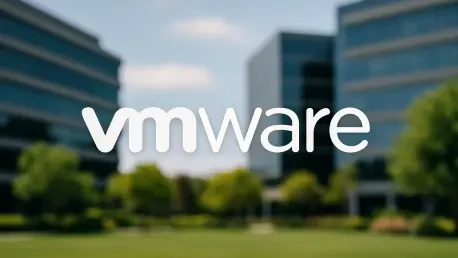In a significant move reflecting growing tension in the tech industry, CISPE, an association representing European cloud providers, has initiated legal proceedings against Broadcom Inc.’s recent $61 billion acquisition of VMware. The complaint aims to annul the European Union’s endorsement of the deal, expressing concerns over potential antitrust violations and the repercussions for competitive markets. The acquisition, which faced early scrutiny from both European and UK regulators, delves into complex territory, given VMware’s strong standing in the hypervisor software market, particularly with its vSphere product. The EU regulators feared the acquisition could harm competitors as Broadcom consolidates power, possibly restricting support for competing server-storage connection technologies like FC HBA chips. Broadcom’s assurances of maintaining support and open-sourcing its FC HBA drivers initially placated some regulatory concerns, yet CISPE argues these measures fall short of addressing long-term competitive fairness.
Regulatory Concerns and Initial Agreements
Recent developments in the acquisition landscape have renewed interest in how tech giants fulfill commitments and regulations post-approval. Upon initiating the VMware acquisition, Broadcom pledged transparency and openness, particularly by committing to open-source its FC HBA drivers, a move intended to dispel fears of monopolistic behavior. Broadcom’s strategy aimed to reassure regulators by promising continued support for competing FC HBA chips, a critical component in server-storage connectivity. This strategy seemed momentarily effective in addressing EU and UK regulatory apprehensions, demonstrating an effort to maintain market openness as stakeholders observed these reconciliations. However, CISPE has claimed Broadcom did not honor such commitments. Allegations suggest Broadcom invalidated existing VMware software contracts and imposed extensive licensing conditions on consumers, potentially derailing prior assurances. CISPE argues these practices were not just unexpected but disproportionate, exacerbating market competition issues the acquisition originally pledged to resolve.
Alleged Market Behavior Post-Acquisition
Following the acquisition, Broadcom allegedly incurred criticism from various corners for its behavior that potentially disrupts fair competition. CISPE highlighted several actions that exemplify concerns over Broadcom’s business practices, particularly towards VMware’s existing customer base. Complaints include Broadcom’s supposed imposition of multi-year contracts linked to VMware software access, alongside newly defined licensing restrictions. These licensing changes, according to CISPE’s complaint, could disproportionately affect smaller cloud providers, limiting their ability to offer VMware-based services. The fallout has apparently resulted in substantial cost implications, with some customers reporting price increases exceeding tenfold. Such steps pose substantial challenges for smaller providers, potentially giving Broadcom an undue advantage over its rivals and consolidating market power often checked through antitrust initiatives. The continuation of such practices raises questions about tech giants’ responsiveness to antitrust measures and the inherent complexities in enforcing fair competitive policies.
Broader Implications for Antitrust and Market Dynamics
The CISPE lawsuit amplifies ongoing debates concerning the balance between fostering innovation and preventing monopolistic dominance in technology markets. This legal challenge reflects broader apprehensions that tech titans, post-acquisition, could leverage their power in ways that overshadow smaller market players and stifle competition. CISPE’s objection to Broadcom’s acquisition tactics aligns with earlier complaints regarding licensing practices, such as those filed against Microsoft in recent years, showcasing consistent vigilance over ensuring equitable market practices. This ongoing legal battle underscores the importance of regulatory frameworks and their adaptation as industries evolve, ensuring the playing field remains level amid changing dynamics. As the debate unfolds, regulatory bodies and industry players will likely need to collaborate more closely to refine regulations that anticipate emerging challenges and safeguard competitive integrity.
Future Considerations and Potential Outcomes
In a noteworthy development highlighting escalating tensions in the tech sector, CISPE, which represents European cloud providers, has filed a lawsuit against Broadcom Inc.’s recent $61 billion takeover of VMware. The complaint seeks to overturn the European Union’s approval of the merger, citing worries about potential antitrust violations and the impact on market competition. The acquisition drew early attention from European and UK regulators because of VMware’s dominance in the hypervisor software market, notably its vSphere product. EU regulators expressed concerns that the merger might damage competitors by letting Broadcom strengthen its influence, potentially limiting support for rival server-storage connection technologies such as FC HBA chips. Although Broadcom assured it would continue supporting these technologies and even planned to open-source its FC HBA drivers, thereby calming some regulatory fears initially, CISPE insists that these commitments are insufficient to guarantee fair competition in the long run.









